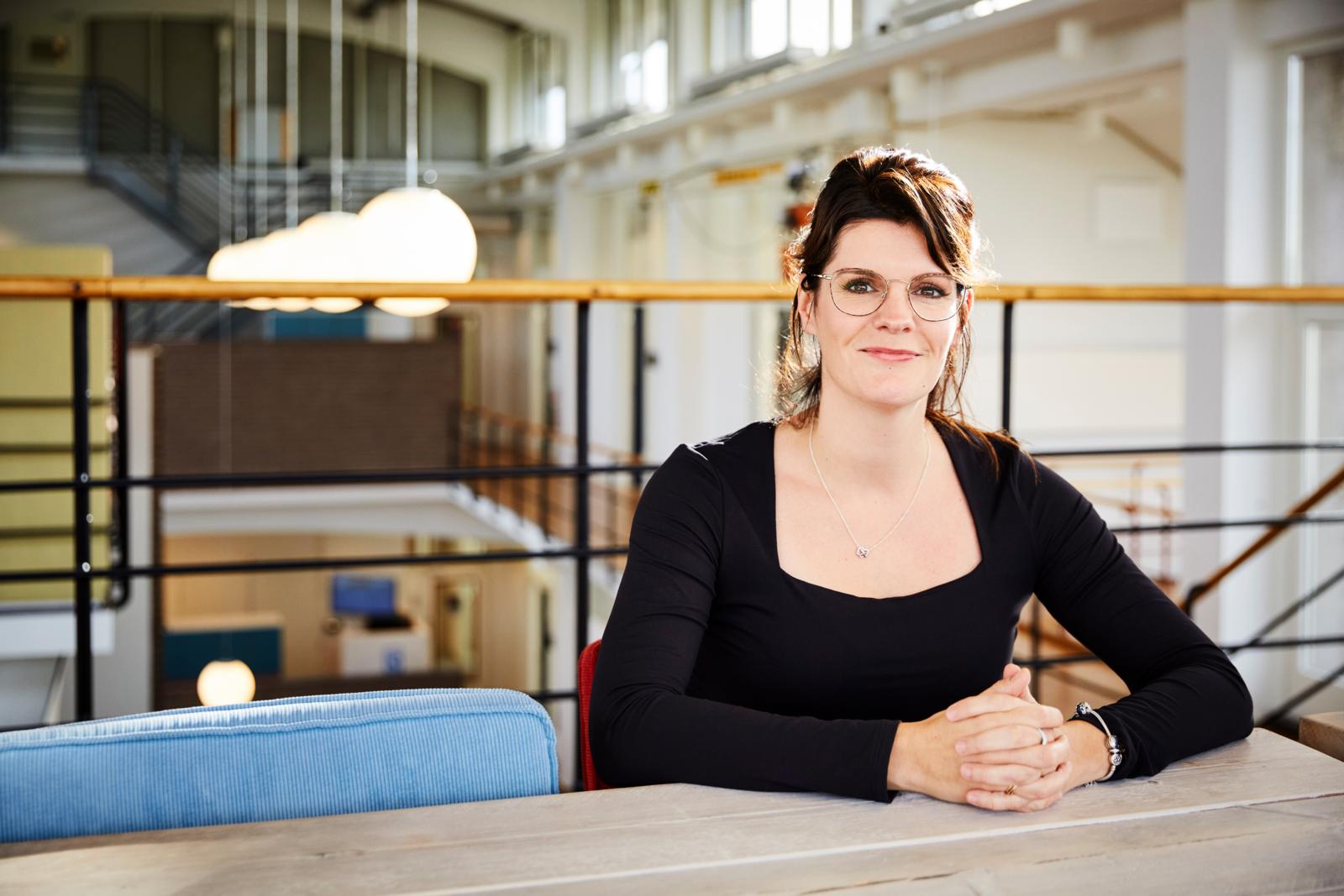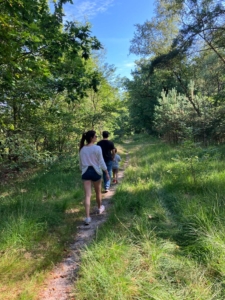In the series ‘NLR People’, we show you who the experts at the Royal Netherlands Aerospace Centre are, what drives them, and what they are working on behind the scenes. In this fourth episode: Carlina Grispen, military research and development analyst at the Defence Department.
Linking technology and tactics for the Defence Department
Carlina Grispen grew up in the shadow of Volkel military air base. It’s no coincidence that she was interested in F16s at the tender age of four. Her grandfather, who emigrated from Italy to the Netherlands looking for work, had a deep-seated love of everything to do with aerospace. “He had a telescope and he always took me along to the military air base to spot the planes.”
Now, more than thirty years later, Carlina is a part-time PhD student at the Royal Military Academy (KMA) and part-time military research and development analyst at the Royal Netherlands Aerospace Centre. On behalf of NLR, she provides support for the Defence Department in the transition to what is known as a ‘fifth-generation air force’, for instance through research into command and control and multi-domain operations (MDO), a relatively new concept for warfare. Within NLR, she set up the Military Minds initiative for improving the relationship between military science and relevant applications.
The security of the Netherlands
Her grandfather is unfortunately no longer alive, but Carlina goes to the office every day carrying his briefcase, and his picture has pride of place on her desk. “I have a huge drive and a great love of what I do. My involvement in warfare is how I play a part in the security and welfare of the Netherlands – not only for now but also for the next generation. That drive has become all the stronger now that I’m a mother too.”
For years, there was only one conceivable answer to the question of what Carlina wanted to be: an F16 pilot. However, she was rejected when she applied at age eighteen. She was ‘stubborn as a mule’ and waited for years for a role with the Royal Netherlands Air Force that she thought she would enjoy just as much. Nothing turned up, so she started – albeit reluctantly – a bachelor’s in philosophy. Where possible, she included a military twist in the literature she read and the essays she wrote.
Studying with the officers
When the KMA in Breda got its scientific accreditation, she registered for a minor in war studies. Carlina was one of the first civilians to take classes at the military institute. “There I was, in amongst the officers,” she says, laughing. “It cost me an extra year before graduating, but I got every point that was available.”
Once she started on a master’s in Military Strategy, all the pieces of the puzzle began to fall into place for the young woman from Brabant. This academic detour let her live her dream after all and she was put forward as a candidate for a project at NLR.
Fifth-generation air force
The first project Carlina worked on for NLR was Command and Control (C2). C2 is about running an operation, from A to Z – from planning to controlling the planes and then the evaluation, as Carlina explains. Whereas NLR previously tended to deal with a single facet of that process, such as a piece of technology, the Air Force was looking increasingly for an understanding of the entire process.
That involves more than just technology. “Leadership and communication then become important,” says Carlina. “It’s a good example of the transition that the Air Force is undergoing, to become what’s called a fifth-generation air force.” That transition will create a technologically advanced organisation that is capable of taking multi-domain, integrated actions that are information-driven. In its role as a strategic partner, NLR aims to help the Royal Netherlands Air Force make that transition, which means not only that NLR’s knowledge and expertise will be called upon more often, but also that those facets will be used differently.
“It demands a very different way of thinking and solving problems. Engineers are very good in their specific technical fields, but it can be pretty awkward to create that link with the military personnel who are ultimately going to have to work with that tech in a different context. It means that engineers now have to zoom in much more closely on how their products fit within a much larger operation. That’s a completely different way of working.”
“There I was, in amongst the officers, as one of the first civilians to take classes at the military institute”
Multi-domain operations
Four years later, Carlina is involved in various ways in supporting the Air Force in that transition. That includes multi-domain operations (MDO), which is also the subject of her thesis. It is a concept that was developed several years ago as a response to the changing geopolitical situation. “For a long time, we’ve only been involved at the tactical level – for larger operations, we fit in with the NATO structure, for example. Over recent years, the idea that countries need to be able to provide certain capabilities independently has gained momentum. MDO can play a part in this.”
Carlina is mapping out the technological, organisational and conceptual factors that can underpin a successful MDO implementation. “MDO actually means that various parts of the armed forces work together to achieve effects jointly. That may sound obvious, but it wasn’t the case until recently. On top of that, we’re always acting on the basis of the information we can acquire and ever more information now is coming in from all kinds of angles – which doesn’t automatically mean that decision-making will get any better. Too much data or wrong information can lead to no decision being made, or a wrong one.”
High standards
There’s also a flip side to being so deeply involved in the work she loves doing. “I demand a great deal from myself and I sometimes get the feeling that neither my work nor the research for my studies are up to scratch. There are moments every month when I think I should drop my thesis – and the next month I think it’s fantastic again.”
Carlina lets off steam three times a week in the boxing gym or goes running through the Brabant woodlands with her dog. Bridging the gap between the tactical and strategic levels of military operations to create an effective Defence force is no easy task. There’s nothing Carlina would rather do, though. “That intrinsic motivation – helping make the Netherlands safer for the generations to come – is number one for me, head and shoulders above the rest. It may not have gone quite as I envisaged as a little girl, but I’m involved in it every single day nevertheless. I hope that my story shows that you don’t have to let setbacks stop you: you can still achieve your dreams by non-traditional routes, if you work hard enough.”


